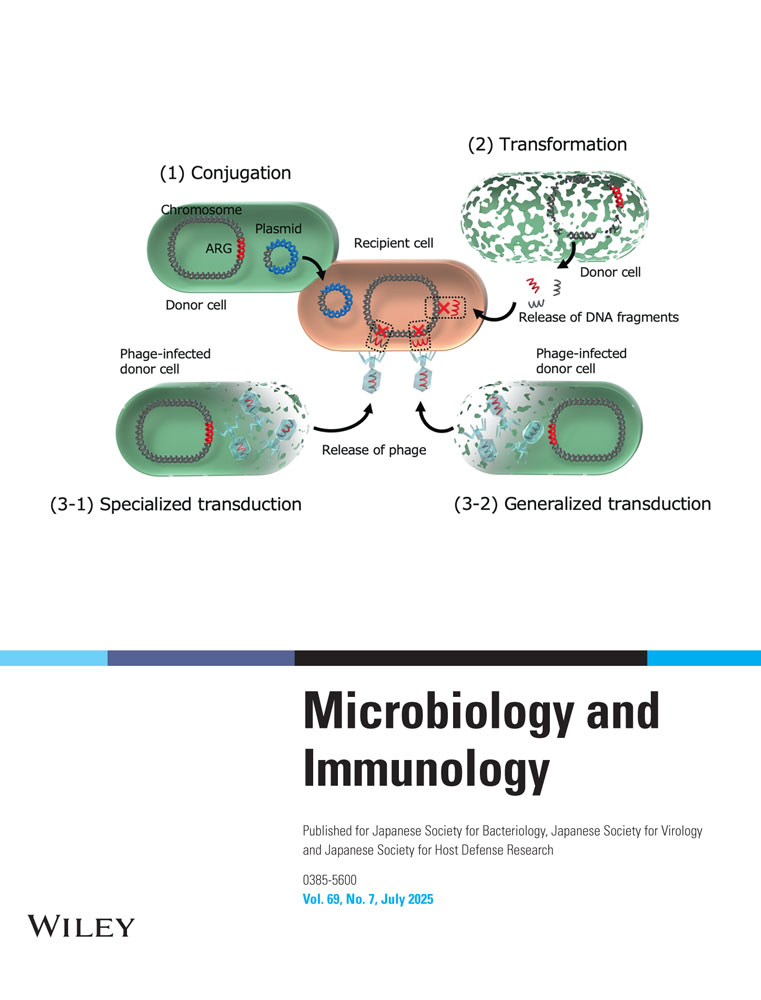Cytokine-Independent Proliferation of IL-2-Nonproducing CTL Clones in Association with High TCR-Signal Transduction Responses
Abstract
Alloreactive CTL clone D2-23 proliferated in response to antigenic cells without IL-2 production. Among subclones of D2-23, the F1 but not F2 clone proliferated in response to soluble aCD3 or PMA, although both clones proliferated in response to immobilized aCD3, antigenic cells or soluble aCD3 plus costimulatory cells. The difference in responsiveness between F1 and F2 was not caused by distinct expression of CD3 or Fc receptors. Cyclosporin A, which totally blocks IL-2 production of Th1 cells, barely or only partially inhibited PMA- or aCD3-induced proliferation of F1. F1 did not produce cytokines for proliferation of F2 in response to soluble aCD3. Tyrosine phosphorylation developed for various proteins of F1 and F2 at the levels apparently correlated to the extent of cell proliferation when the cells were stimulated with soluble aCD3 or PMA. The proliferative responsiveness of F1 and F2 to the described stimulators was maintained by stimulation with IL-2 plus antigenic cells, or even IL-2 alone, but was decreased during resting culture or by stimulation with immobilized aCD3. These results show evidence of a new TCR-linked mechanism for CTL proliferation that is independent of costimulatory cell- or cytokine-mediated signaling, but is originally prepared by prior stimulation with IL-2.
Abbreviations
-
- aCD3
-
- anti-CD3 monoclonal antibodies
-
- CsA
-
- cyclosporin A
-
- FcR
-
- Fc receptors
-
- ImaCD3
-
- immobilized aCD3
-
- PMA
-
- phorbol 12-myristate 13-acetate
-
- SolaCD3
-
- Soluble aCD3
-
- SPC
-
- spleen cells
-
- XB/ c (XD2, Xn/n)
-
- irradiated BALB/c (B10.D2, BALB/cA-nu/nu) spleen cells




